Femia > Health Library > Getting Pregnant > Trying to conceive > 8 DPO: What to expect, and how to tell if you’re pregnant
8 DPO: What to expect, and how to tell if you’re pregnant
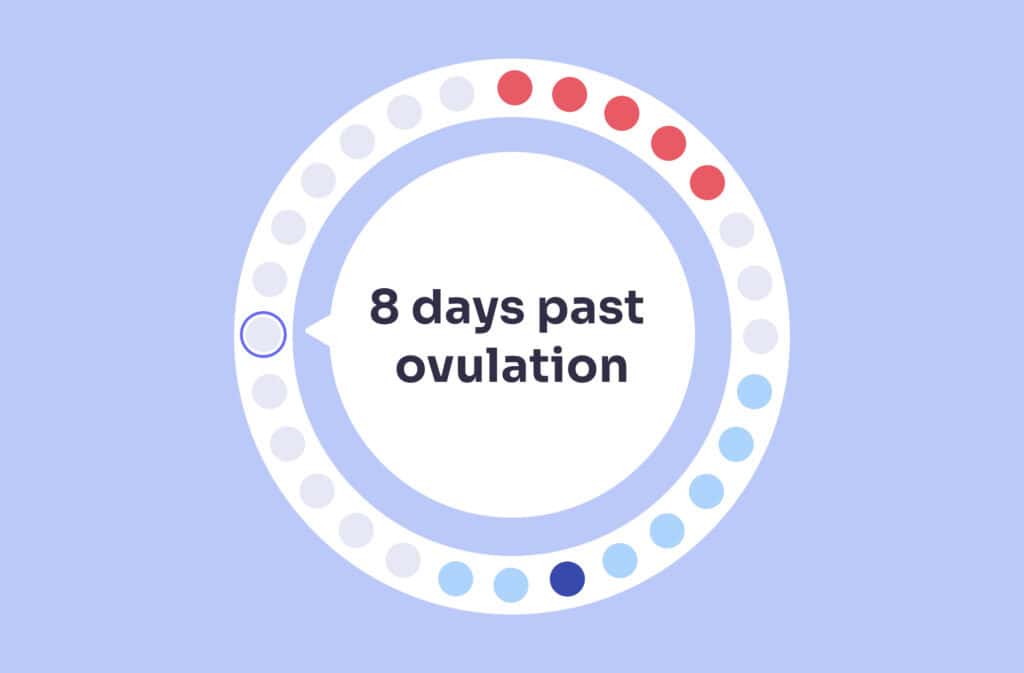
- Updated Feb 25, 2025
- Published
CRAFTED BY HUMAN
Crafted by human At Femia, we provide accurate and up-to-date information at every stage of your journey, from trying to conceive, pregnancy and postnatal support. All content is created by a real person based on in-depth research and own professional experience. Femia ensures that you will receive expert advice, strict accuracy and a personalized approach from our authors/medical experts. Learn more about our editorial policy.
FACT CHECKED
Fact checked At Femia Health, we maintain the highest standards of editorial excellence in delivering content focused on helping you conceive, guiding you through pregnancy, and supporting you postpartum. Explore our content review principles to learn how we ensure the accuracy and quality of our health and lifestyle tips for every stage of your journey.
At 8 DPO (8 days past ovulation):
- Implantation may be occurring or have recently occurred for some women.
- Hormone levels continue to rise, particularly progesterone.
- Early pregnancy symptoms may become more noticeable, but many women still won’t feel different. 8 DPO symptoms can be similar to PMS, making it challenging to distinguish between the two.
- While still early, some highly sensitive pregnancy tests might detect pregnancy in some cases.
Welcome to the 8 DPO milestone! Whether you’re actively trying to conceive or simply curious about your body’s changes, this guide will help you navigate this exciting yet sometimes confusing time. Let’s explore what’s happening in your body and what signs you might be experiencing.
➡️ Read other Femia guides in this series:
- 1 DPO: What to expect, and how to tell if you’re pregnant
- 2 DPO: What to expect, and how to tell if you’re pregnant
- 3 DPO: What to expect, and how to tell if you’re pregnant
- 4 DPO: What to expect, and how to tell if you’re pregnant
- 5 DPO: What to expect, and how to tell if you’re pregnant
- 6 DPO: What to expect, and how to tell if you’re pregnant
- 7 DPO: What to expect, and how to tell if you’re pregnant
- 9 DPO: What to expect, and how to tell if you’re pregnant
- 10 DPO: What to expect, and how to tell if you’re pregnant
- 11 DPO: What to expect, and how to tell if you’re pregnant
- 12 DPO: What to expect, and how to tell if you’re pregnant
- 13 DPO: What to expect, and how to tell if you’re pregnant
- 14 DPO: What to expect, and how to tell if you’re pregnant
- 15 DPO: What to expect, and how to tell if you’re pregnant
- 16 DPO: What to expect, and how to tell if you’re pregnant
What does 8 DPO mean?
8 DPO stands for “8 days past ovulation.” You’re now well into the second half of your menstrual cycle, known as the luteal phase.
During this time, your body is preparing for the possibility of pregnancy, regardless of whether fertilization has occurred.
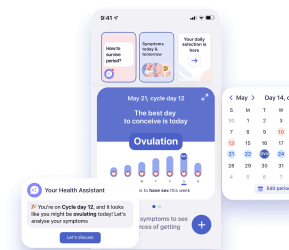
What's happening in your body at 8 DPO?
At 8 DPO, several important processes may be taking place:
1. Potential implantation
If fertilization occurred, the embryo might be implanting or have recently implanted in your uterine lining. This is a crucial step in early pregnancy and typically happens between 6-12 days after ovulation.
2. Hormonal changes
Your body continues to produce increasing amounts of progesterone, which supports early pregnancy. If conception has occurred, your body may start producing small amounts of human chorionic gonadotropin (hCG), the hormone detected by pregnancy tests.
3. Uterine lining changes
Your uterine lining remains thick and well-vascularized, ready to support a potential pregnancy.
8 DPO symptoms: What might you be experiencing?
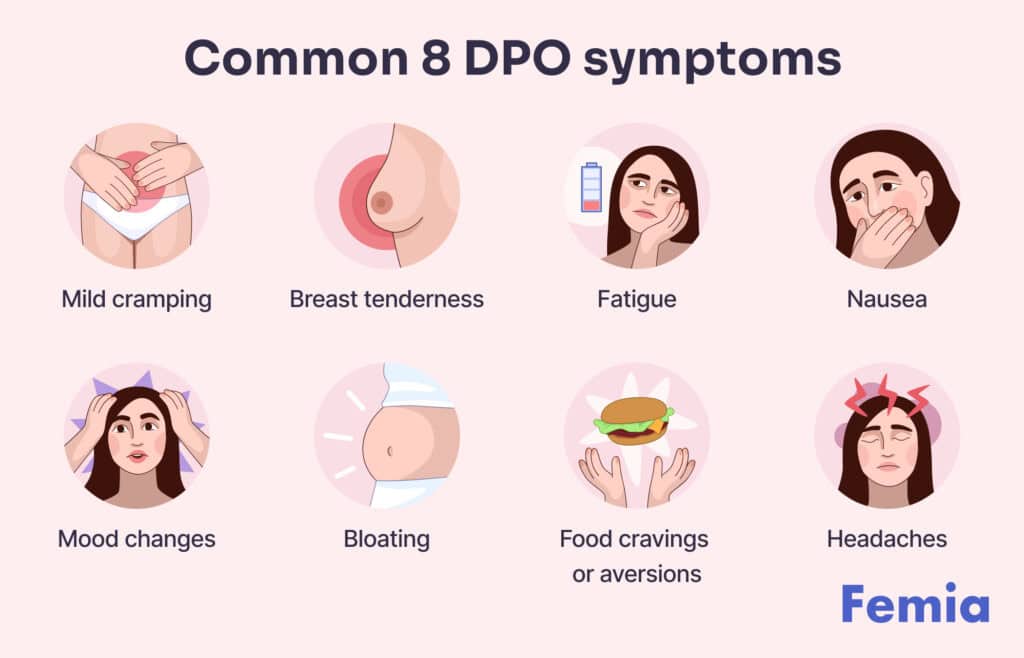
At 8 DPO, you might start noticing some early signs of pregnancy.
However, it’s important to remember that many of these symptoms can also be related to PMS or normal hormonal fluctuations.
Here are some common 8 DPO symptoms:
- Mild cramping: Some women experience 8 DPO cramping, which could be related to implantation or normal luteal phase changes.
- Breast tenderness: Your breasts might feel sore, swollen, or more sensitive than usual.
- Fatigue: You might feel more tired than normal as your body works hard to support a potential pregnancy.
- Nausea: Some women report feeling queasy, though full-blown morning sickness typically starts later.
- Mood changes: Hormonal fluctuations can affect your emotions, leading to mood swings or increased sensitivity.
- Bloating: You might feel a bit puffy or bloated in your abdomen.
- Headaches: Hormonal shifts can sometimes trigger mild headaches.
- Food cravings or aversions: You might notice changes in your appetite or food preferences.
Remember, experiencing these symptoms doesn’t guarantee pregnancy, and not having them doesn’t mean you’re not pregnant. Every woman’s body responds differently to early pregnancy or hormonal changes.
8 DPO cervical mucus: What to expect
Cervical mucus can provide clues about your fertility and potential pregnancy. At 8 DPO, you might notice changes in your cervical mucus. Here’s what you might observe:
8 DPO cervical mucus if pregnant
If you’re pregnant, you might notice:
- An increase in creamy, white discharge;
- Sticky or tacky cervical mucus;
- No significant change in cervical mucus (for some women).
8 DPO cervical mucus if not pregnant
If you’re not pregnant, you might see:
- A decrease in cervical mucus compared to your fertile window;
- Thicker, stickier mucus;
- Dry or little cervical mucus.
It’s important to note that cervical mucus observations aren’t a reliable way to confirm or rule out pregnancy at 8 DPO. Many women experience similar changes whether they’re pregnant or not.
👉Find out more: Fertility diet: What to eat to boost your chances of getting pregnant
Can I take an 8 DPO pregnancy test?
Many women wonder, “Is 8 DPO too early to test?” While it’s natural to be eager, 8 DPO is still considered early for a pregnancy test.
Here’s why:
- Implantation timing: Implantation typically occurs between 6-12 days after ovulation. At 8 DPO, implantation may have just happened or might not have occurred yet.
- hCG levels: Even if implantation has occurred, it takes time for hCG levels to rise sufficiently to be detected by a test.
- Test sensitivity: Most home pregnancy tests are designed to detect pregnancy around the time of your missed period, which is usually a few days after 8 DPO.
While it’s possible to get an 8 DPO positive pregnancy test, these cases are relatively rare. If you do decide to test this early, keep in mind that a negative result doesn’t necessarily mean you’re not pregnant – it could just be too early to detect.
For the most reliable results, it’s best to wait until at least the day of your expected period before taking a pregnancy test. If you can’t wait that long, try to hold off until at least 12-14 DPO for a more accurate result.
👉Find out more: Evaporation line vs. faint positive: How to tell the difference on your pregnancy test
8 DPO pregnant or PMS?
One of the most challenging aspects of the two-week wait is distinguishing between early pregnancy symptoms and PMS. At 8 DPO, many symptoms can overlap, making it difficult to know if you’re experiencing 8 DPO symptoms if pregnant or just normal premenstrual changes.
Here’s a comparison table to help you understand the similarities and differences:
| Symptom | 8 DPO: pregnant | 8 DPO: PMS |
|---|---|---|
| Cramping | Mild, possibly due to implantation | Can be more intense, similar to menstrual cramps |
| Breast changes | Tenderness, swelling | Tenderness, swelling (often subsides after period starts) |
| Mood changes | Can be more pronounced | Typically improves once period starts |
| Fatigue | May be more intense | Usually improves after period starts |
| Nausea | Possible, but often starts later | Uncommon, but can occur |
| Food cravings/aversions | May be present | Can also occur |
Remember, the only definitive way to distinguish between pregnancy and PMS is through a positive pregnancy test and confirmation from a healthcare provider.

Questions from the Femia community
I'm experiencing spotting at 8 DPO. Could this be implantation bleeding?
Spotting at 8 DPO could potentially be implantation bleeding, as this timing aligns with when implantation typically occurs. But not all pregnant women experience implantation bleeding, and spotting can occur for other reasons as well. If you're concerned about any bleeding, it's always best to consult with your healthcare provider.
My 8 DPO pregnancy test was negative, but I still feel pregnant. Should I test again?
At 8 DPO, it's still very early for a pregnancy test to detect hCG, even if you are pregnant. If you feel strongly that you might be pregnant, wait a few days and test again. The most reliable results come from testing after your missed period.
Is it normal to have no symptoms at 8 DPO?
Absolutely! Many women don't experience any noticeable symptoms at 8 DPO, even if they're pregnant. The absence of symptoms doesn't rule out pregnancy, just as having symptoms doesn't guarantee it. Every woman's body responds differently to early pregnancy.
The bottom line
Remember, while it’s natural to be attentive to every potential sign during the two-week wait, try not to stress too much about symptoms or lack thereof. Your body will provide more definitive answers in the coming days. In the meantime, focus on self-care and patience. If you have any concerns, don’t hesitate to reach out to your healthcare provider for personalized advice.
➡️ Read other Femia guides in this series:
- 1 DPO: What to expect, and how to tell if you’re pregnant
- 2 DPO: What to expect, and how to tell if you’re pregnant
- 3 DPO: What to expect, and how to tell if you’re pregnant
- 4 DPO: What to expect, and how to tell if you’re pregnant
- 5 DPO: What to expect, and how to tell if you’re pregnant
- 6 DPO: What to expect, and how to tell if you’re pregnant
- 7 DPO: What to expect, and how to tell if you’re pregnant
- 9 DPO: What to expect, and how to tell if you’re pregnant
- 10 DPO: What to expect, and how to tell if you’re pregnant
- 11 DPO: What to expect, and how to tell if you’re pregnant
- 12 DPO: What to expect, and how to tell if you’re pregnant
- 13 DPO: What to expect, and how to tell if you’re pregnant
- 14 DPO: What to expect, and how to tell if you’re pregnant
- 15 DPO: What to expect, and how to tell if you’re pregnant
- 16 DPO: What to expect, and how to tell if you’re pregnant
References
- American College of Obstetricians and Gynecologists (ACOG). “Early Pregnancy Loss: Miscarriage and Molar Pregnancy.” ACOG Practice Bulletin, no. 200, 2018, pp. 1-10. The American College of Obstetricians and Gynecologists. https://www.acog.org/clinical/clinical-guidance/practice-bulletin/articles/2018/11/early-pregnancy-loss.
- “Luteal Phase, an overview.” ScienceSirect. https://www.sciencedirect.com/topics/medicine-and-dentistry/luteal-phase.
- Wilcox, Allen J., et al. “Time of Implantation of the Conceptus and Loss of Pregnancy.” New England Journal of Medicine, vol. 340, no. 23, 1999, pp. 1796-1799. National Library of Medicine.
- American College of Obstetricians and Gynecologists. “Fertility Awareness-Based Methods of Family Planning.” ACOG Practice Bulletin No. 205, 2019. https://www.acog.org/womens-health/faqs/fertility-awareness-based-methods-of-family-planning.
- Gnoth, C., et al. “Time to Pregnancy: Results of the German Prospective Study and Impact on the Management of Infertility.” Human Reproduction, vol. 18, no. 9, 2003, pp. 1959-1966. https://pubmed.ncbi.nlm.nih.gov/12923157/.
- Mayo Clinic Staff. “Home pregnancy tests: Can you trust the results?” Mayo Clinic, 2022. https://www.mayoclinic.org/healthy-lifestyle/getting-pregnant/in-depth/home-pregnancy-tests/art-20047940.
U.S. Food and Drug Administration. “Pregnancy.” FDA, 2019. https://www.fda.gov/medical-devices/home-use-tests/pregnancy.

Discover the facts about this cosmetic procedure while expecting or nursing a baby, and explore safe alternatives to keep your skin healthy and glowing.
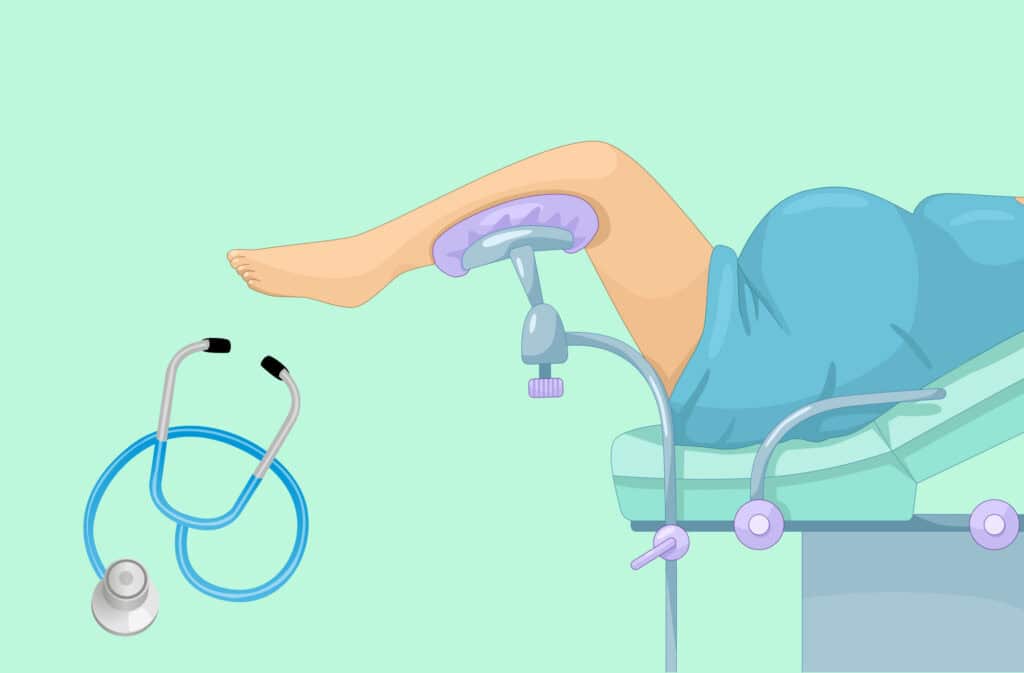
Learn about cervical checks during pregnancy, including what to expect, when they typically happen, and how they can help monitor your progress.
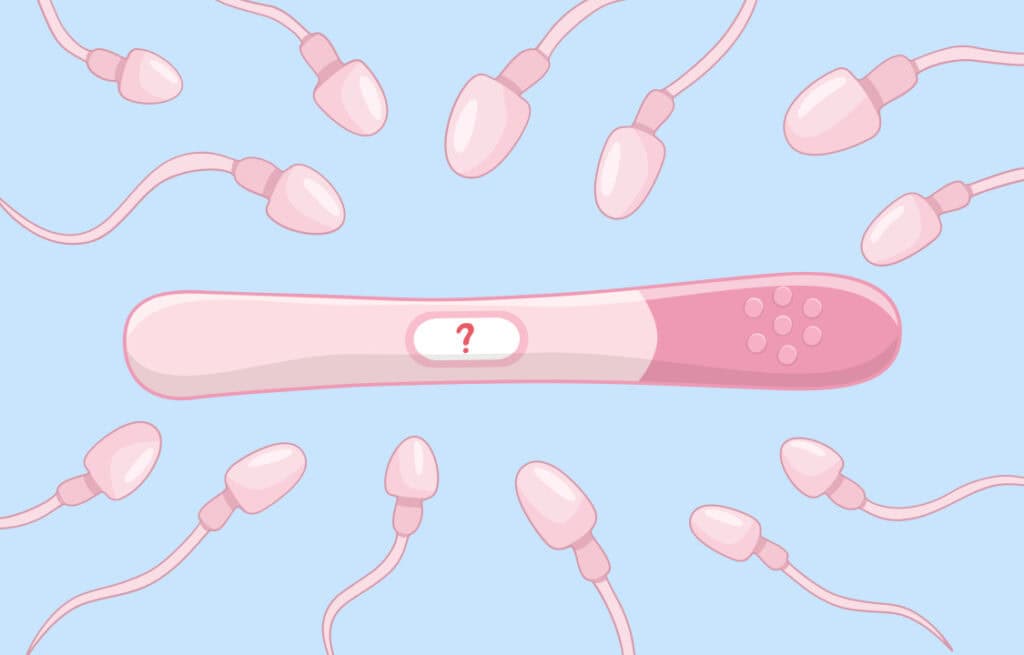
How likely are you to get pregnant from precum? Read this in-depth guide to understand the chances of getting pregnant from precum and find actionable tips to mitigate the risks.

